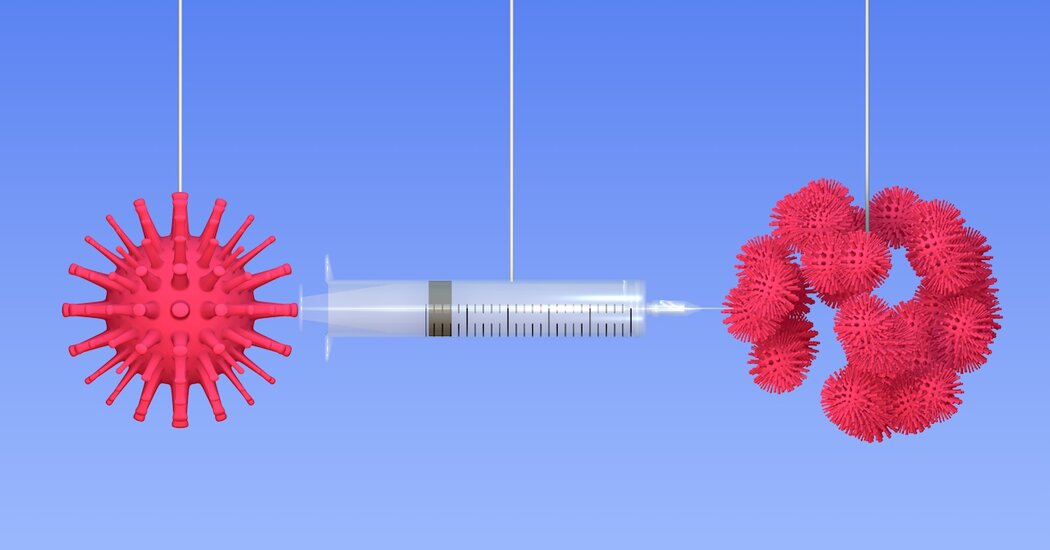
Experts also caution against trying to get infected on purpose as a way to gain hybrid immunity. “I really worry that people will intentionally get infected so they can get to this ‘new normal’,” said Dr. Celine Gounder, an infectious disease specialist at Bellevue Hospital Center. The virus is unpredictable, and even young people can become very sick. “Something could go wrong, and they could end up in the hospital,” she said. In addition, it’s impossible to know who might develop long Covid after an infection.
How much does hybrid immunity protect you?
The immunity boost of a natural infection may be akin to getting a fourth dose of vaccine, said Dr. Peter Chin-Hong, an infectious disease expert at the University of California, San Francisco. Hybrid immunity may also occur if you get infected before getting vaccinated or a booster.
Here’s why. The first time you get vaccinated or infected with a virus, it takes your immune system a little time to respond. But your immune system has a long memory. It reacts more quickly and ramps up more antibodies the next time it detects the virus. The effect appears to be even more pronounced in people who’ve been both vaccinated and infected.
A recent study showed that vaccinated health care workers with breakthrough infections had significantly higher levels of antibodies compared to a vaccinated control group that had not had natural infections. Fikadu Tafesse, an immunologist at Oregon Health & Science University who helped conduct the research, said that although the study was done before the Omicron wave, the findings suggest a drastically elevated level of protection after a breakthrough infection.
“Super immunity is maybe an overreach, but we know the most recent studies show there’s hybrid immunity, really due to immune players known as memory B cells,” said Anita Gupta, an adjunct assistant professor of anesthesiology and critical care medicine at Johns Hopkins University School of Medicine. “When some of the short-lived immune cells go away, these memory B cells are going to last a while.”
But here’s the bad news: Exactly how much extra protection you get and how long it lasts will vary by individual, said Akiko Iwasaki, an immunologist at Yale University. And a person who is immunocompromised or older or otherwise at higher risk for severe disease likely will generate fewer antibodies than a young, healthy person, and their antibody levels may also drop more quickly.
It’s also not clear whether the severity of the illness affects the level of hybrid protection. A person with severe symptoms may have been exposed to a greater amount of the virus, which would trigger more antibodies and thus more protection, Dr. Iwasaki said. A person who was asymptomatic may not have as robust of an immune response to the virus and may be more susceptible to reinfection.




